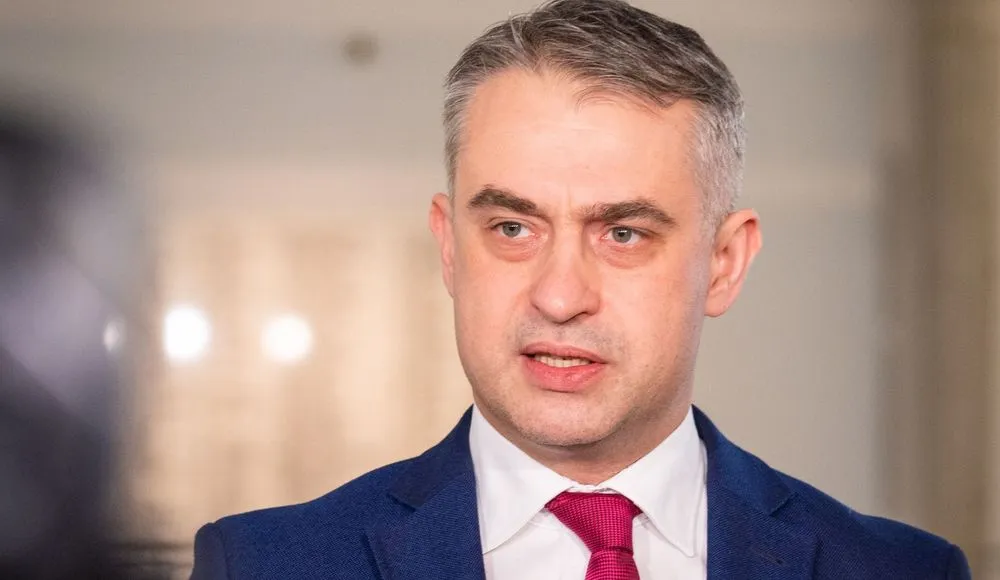Poland uncovers Russia-linked disinformation campaign targeting upcoming presidential election
A Russia-linked disinformation campaign has made attempts to influence Poland’s upcoming presidential elections in May, according to a state official.
The group behind the operation is likely controlled by the Russian military intelligence service, GRU, which recruits individuals “from various backgrounds,” Poland’s digital affairs minister, Krzysztof Gawkowski, said in an interview with local media late last week.
He did not provide specific details about the group’s strategy or methods, stating only that it was "spreading disinformation” to “destroy the coherence” of the country’s political scene.
“Never before in Poland’s history have we been in a situation where we knew that a foreign country, openly waging war, is trying to influence Polish politics and elections,” Gawkowski said.
He emphasized that Poland is constantly working to secure its electoral systems from potential threats, including cyberattacks targeting the electoral commission’s infrastructure and disinformation campaigns. Poland will also unveil a new plan to counter election interference later this month.
“Poland is today the most attacked country in the European Union when it comes to cyberspace incidents,” Gawkowski said during a parliamentary meeting last week. “Russia no longer hides the fact that Poland is its main target.”
💬 Polska jest dzisiaj najbardziej atakowanym państwem w Unii Europejskiej, jeżeli chodzi o incydenty w cyberprzestrzeni. Rosja nie kryje się już z tym, że Polska jest jej głównym celem – wicepremier i minister cyfryzacji @KGawkowski podczas 26. posiedzenia Sejmu Rzeczypospolitej… pic.twitter.com/bwDE8QCMtv
— Ministerstwo Cyfryzacji (@CYFRA_GOV_PL) January 9, 2025
Poland is an attractive target for pro-Russian hackers because of its military aid to Ukraine and its role as a host for Ukrainian refugees, Gawkowski explained. Earlier in September, he noted that cyberattacks on Poland have doubled since 2023, with over 400,000 incidents reported in the first half of the previous year. To bolster its defenses, the country announced a $760 million investment in cybersecurity earlier in June, which will, among other things, counter foreign disinformation campaigns.
“Today, disinformation has become one of the key tools for building tension by various groups, often associated with the Russian or Belarusian flags,” Gawkowski said at the time.
Russia has previously denied such accusations. The Kremlin has not commented on Gawkowski’s latest allegations regarding the influence campaign targeting Polish elections.
Earlier in September, Poland’s security services announced that they had dismantled an alleged cyber sabotage group linked to Russia and Belarus. The group reportedly attempted to “paralyze” the country with cyberattacks. Its members, whose identities were not disclosed, allegedly extorted information from local government agencies and state-owned companies handling military and security matters.
In May 2023, Poland reported that Russia-linked hackers had targeted the Polish Press Agency, attempting to spread fake news on its website. The fabricated story falsely claimed that the Polish authorities had announced a partial mobilization of 200,000 men to fight in Ukraine. At the time, the Russian embassy in Warsaw stated it was unaware of the incident and declined to comment.
Russia has previously been accused of interfering in election infrastructure across Eastern Europe. For example, in December, Romania’s constitutional court annulled the first round of its presidential election after declassified intelligence revealed Russian interference had influenced the results.
The Russian operation reportedly orchestrated a sophisticated disinformation campaign on social media platforms, particularly TikTok. It also exploited cybercrime platforms trading credentials used by Romanian voters to access electoral websites. Thousands of cyberattacks were recorded during the election, damaging electoral computers and forcing a recount on the evening of the vote.
Daryna Antoniuk
is a reporter for Recorded Future News based in Ukraine. She writes about cybersecurity startups, cyberattacks in Eastern Europe and the state of the cyberwar between Ukraine and Russia. She previously was a tech reporter for Forbes Ukraine. Her work has also been published at Sifted, The Kyiv Independent and The Kyiv Post.



